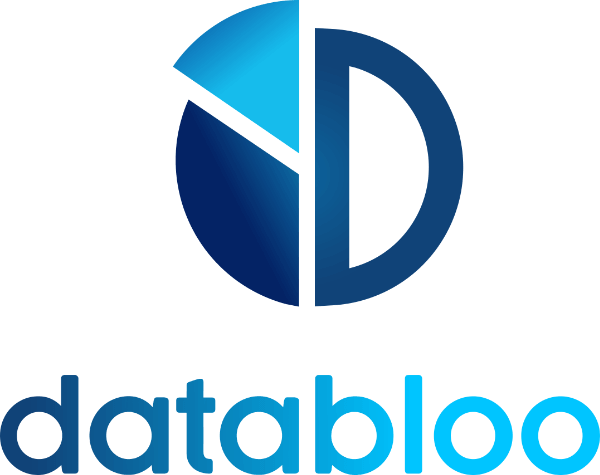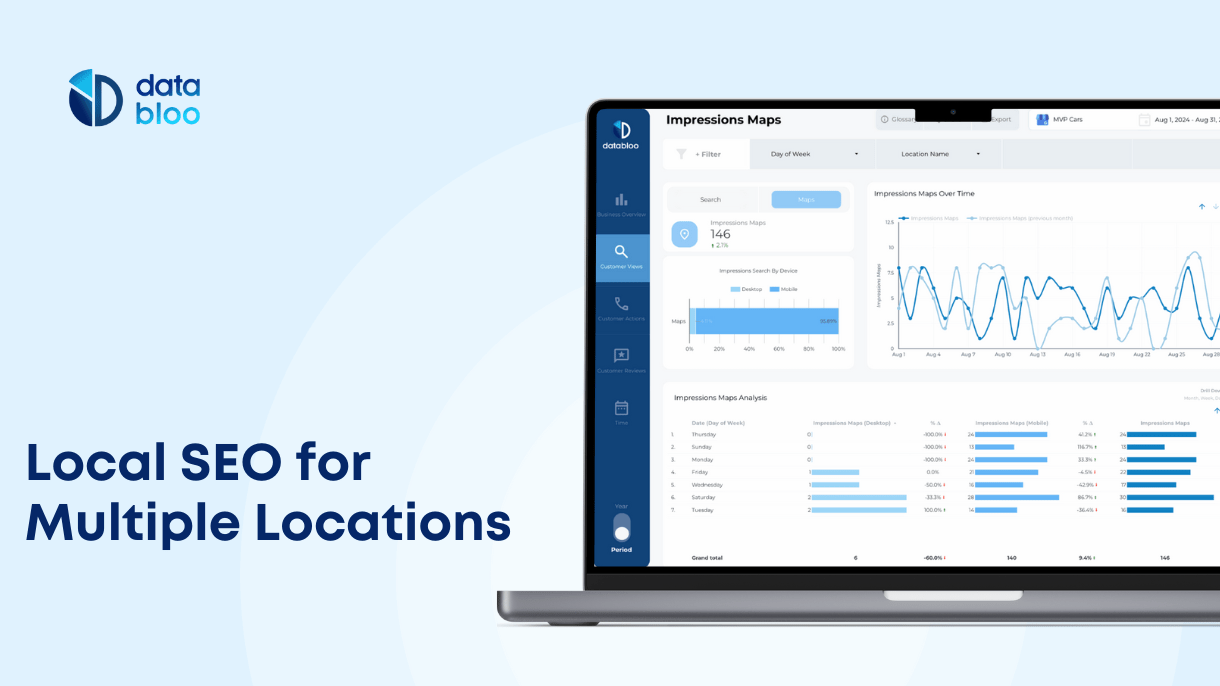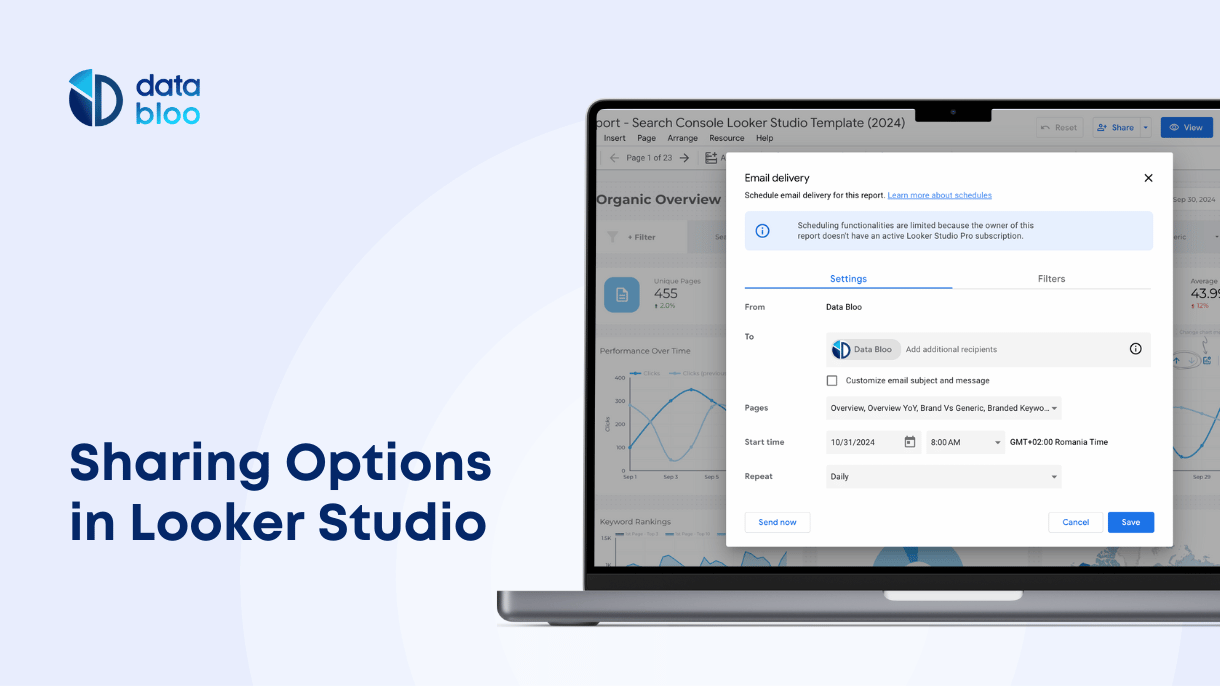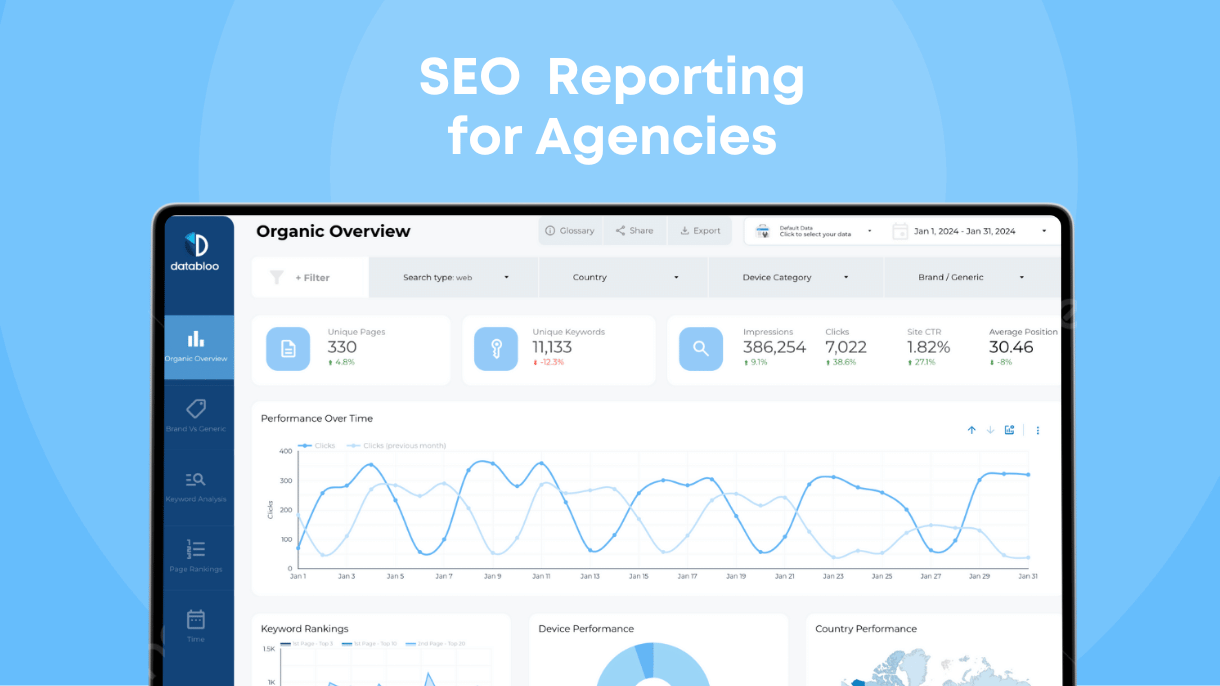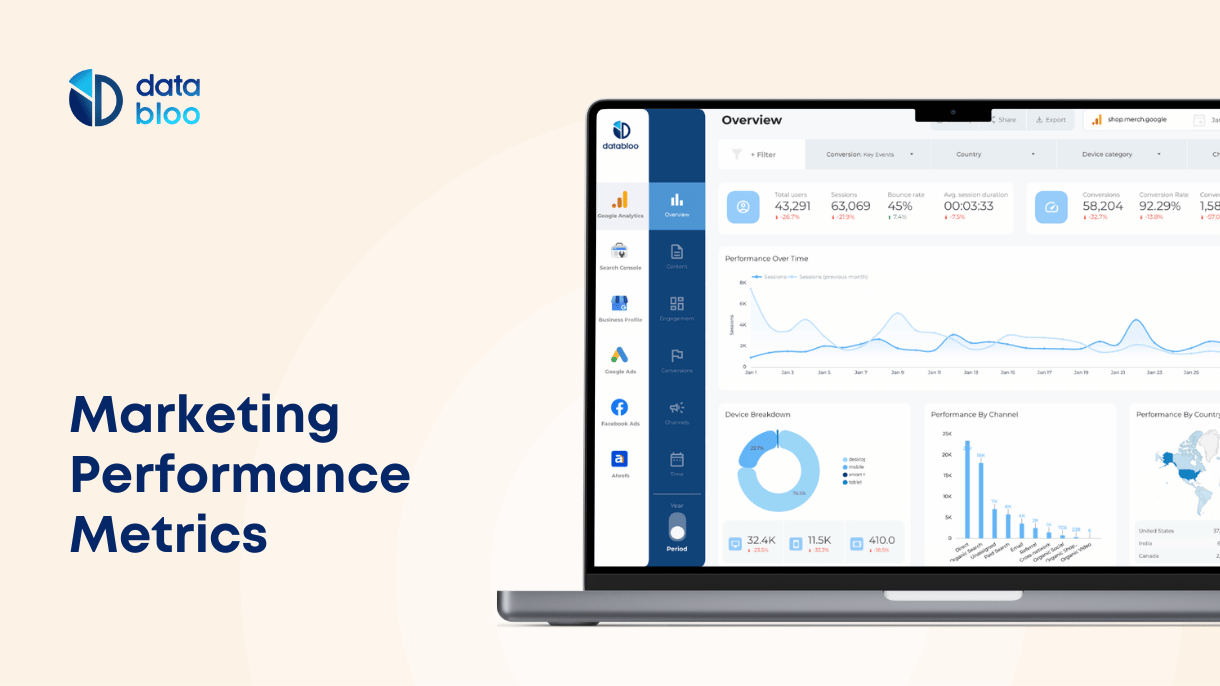Table of Contents
Local SEO for multiple locations requires strategic planning and precise execution to help businesses dominate search results across different geographic markets. Managing SEO campaigns for numerous business locations presents unique challenges that demand specialized approaches and tools.
This comprehensive guide explores how modern businesses can streamline their multi-location SEO efforts while maintaining consistency and driving results.
Understanding Multi-Location SEO Challenges
Multi-location businesses face complex hurdles when implementing SEO strategies across different markets. Each location requires unique optimization while maintaining brand consistency and avoiding duplicate content penalties.
Traditional SEO approaches often fall short when scaling across multiple locations. Businesses struggle with managing countless Google My Business listings, tracking local rankings, and analyzing performance data from various markets simultaneously.
Before Data Bloo: A retail chain with 50 locations spent weeks manually compiling SEO reports from different markets, often missing crucial optimization opportunities due to delayed insights.
After Data Bloo: The same business now receives automated, real-time dashboards showing local search performance across all locations, enabling immediate action on emerging trends.
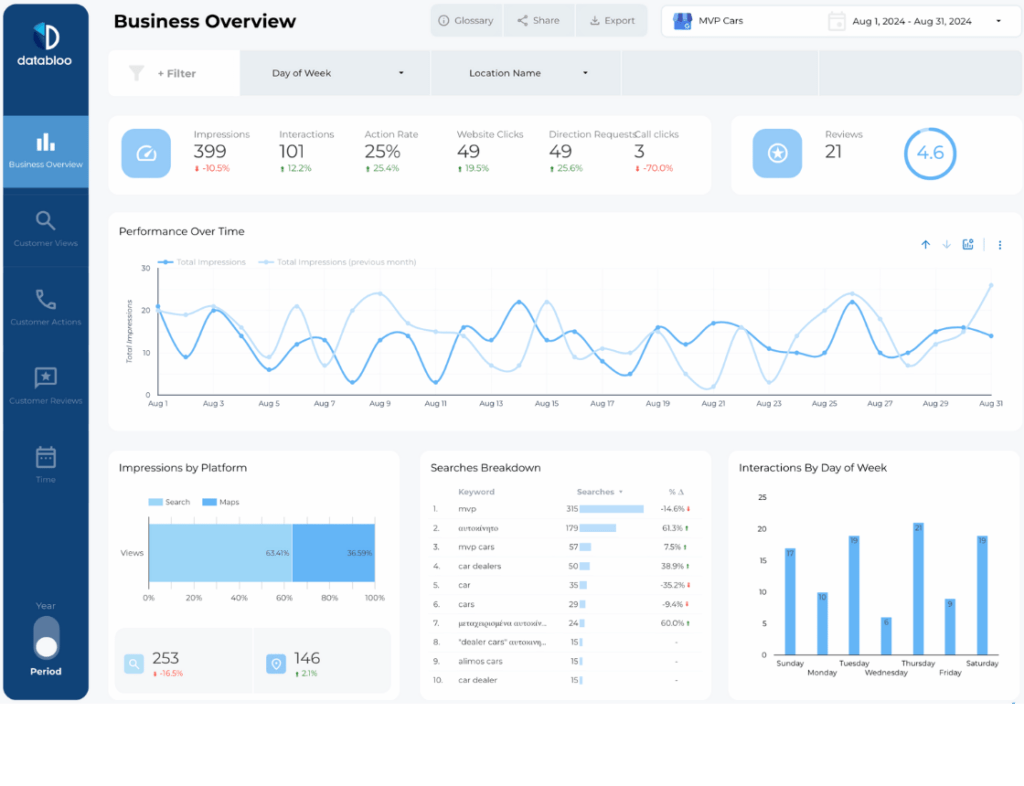
💡 Try it yourself!👉 Check out the free demo here to explore how Data Bloo can streamline your multi-location SEO reporting.
Creating Location-Specific Content Strategies
Effective local SEO for multiple locations demands tailored content that resonates with each market’s unique characteristics. Generic content fails to capture local search intent and loses competitive advantage.
Develop location pages that incorporate local keywords, community events, and regional preferences. Each page should provide genuine value while maintaining your brand’s core message and quality standards.
Data Bloo’s automated reporting features help businesses track content performance across locations. The platform identifies which content types generate the most engagement in specific markets, enabling data-driven content optimization decisions.
Optimizing Google My Business for Scale
Managing multiple Google My Business listings becomes exponentially complex as location count increases. Consistency across all listings while highlighting each location’s unique attributes requires systematic approaches.
Ensure NAP (Name, Address, Phone) consistency across all online directories and platforms. Inconsistent information confuses search engines and diminishes local search visibility for all locations.
Regular monitoring prevents issues before they impact rankings. Data Bloo’s real-time analytics track GMB performance metrics across all locations, alerting businesses to sudden changes in visibility or engagement rates.
Technical Implementation
Technical SEO elements require careful coordination when managing multiple locations to avoid common pitfalls like duplicate content or conflicting schema markup. Each location needs proper technical foundation while supporting overall domain authority.
Implement location-specific schema markup for each business location. This structured data helps search engines understand geographic relevance and improves local search result appearances.
Create XML sitemaps for each location while maintaining proper internal linking structures. Data Bloo simplifies technical SEO monitoring by providing automated alerts when technical issues arise across any location.
Tracking and Measuring Multi-Location Performance
Success in multi-location SEO requires comprehensive tracking systems that provide insights into individual location performance while revealing broader trends and opportunities.
Standard analytics tools often struggle with multi-location data organization. Businesses need dashboards that segment performance by location while maintaining overview perspectives for strategic decision-making.
Data Bloo’s visualization capabilities transform complex multi-location data into actionable insights. The platform automatically generates reports comparing location performance, identifying top performers and locations needing attention.
Advanced Strategies for Competitive Advantage
Competitive multi-location SEO extends beyond basic optimization tactics. Successful businesses leverage advanced strategies that capitalize on local market dynamics and consumer behavior patterns.
Monitor competitor activities across all target markets. Local competition varies significantly between markets, requiring location-specific competitive analysis and strategic responses.
Implement review management systems that maintain consistent brand reputation across all locations. Positive reviews significantly impact local search rankings and customer acquisition in each market.
Building Sustainable Multi-Location SEO Systems
Long-term success requires scalable systems that accommodate business growth without proportionally increasing management complexity. Sustainable approaches focus on automation and standardized processes.
Document standard operating procedures for each SEO task across locations. This ensures consistency while enabling efficient onboarding of new locations or team members.
Data Bloo automates routine SEO monitoring tasks, freeing teams to focus on strategic initiatives. The platform’s seamless integrations connect various data sources, providing comprehensive multi-location SEO oversight without manual data compilation.
Conclusion
Mastering local SEO for multiple locations demands strategic planning, consistent execution, and powerful analytics tools. These tools must provide actionable insights across all markets. Success requires balancing standardized approaches with location-specific optimization. Scalability must be maintained as your business grows.
The complexity of managing multi-location SEO campaigns makes automation essential. Real-time monitoring is crucial for competitive advantage. Businesses that leverage advanced analytics platforms can identify opportunities faster. They respond to market changes immediately and optimize resource allocation across all locations.
Data Bloo transforms multi-location SEO from a daunting challenge into a manageable, data-driven process. The Custom Master Template provides the foundation for comprehensive multi-location analytics.
Try out the demo to see how Data Bloo’s templates and connectors can enhance your local SEO analytics. Streamline your multi-location optimization efforts today.
FAQs
1. How many locations can I optimize simultaneously with local SEO strategies?
There’s no technical limit to the number of locations you can optimize, but management complexity increases exponentially with each additional location. Most businesses find success by starting with their top-performing markets and gradually expanding their local SEO efforts using automated tools and standardized processes.
2. Should each location have its own website or subdomain?
Individual location pages on your main domain typically perform better than separate websites or subdomains. This approach consolidates domain authority while allowing location-specific optimization. Create unique, valuable content for each location page that addresses local search intent and community needs.
3. How do I avoid duplicate content issues across multiple location pages?
Focus on unique, location-specific content that addresses local customer needs and market characteristics. Avoid templated content that only changes city names. Include local events, community partnerships, customer testimonials, and market-specific services or products to create genuinely unique pages.
4. What’s the most important ranking factor for multi-location businesses?
Google My Business optimization combined with consistent NAP information across all online directories remains crucial for multi-location success. However, location-specific content quality and local relevance signals like reviews and local citations significantly impact rankings in competitive markets.
5. How often should I monitor local SEO performance across multiple locations?
Real-time monitoring provides the best results for multi-location businesses, as local search landscapes change rapidly. Weekly performance reviews help identify trends and opportunities, while daily monitoring catches technical issues or sudden ranking changes that require immediate attention.
